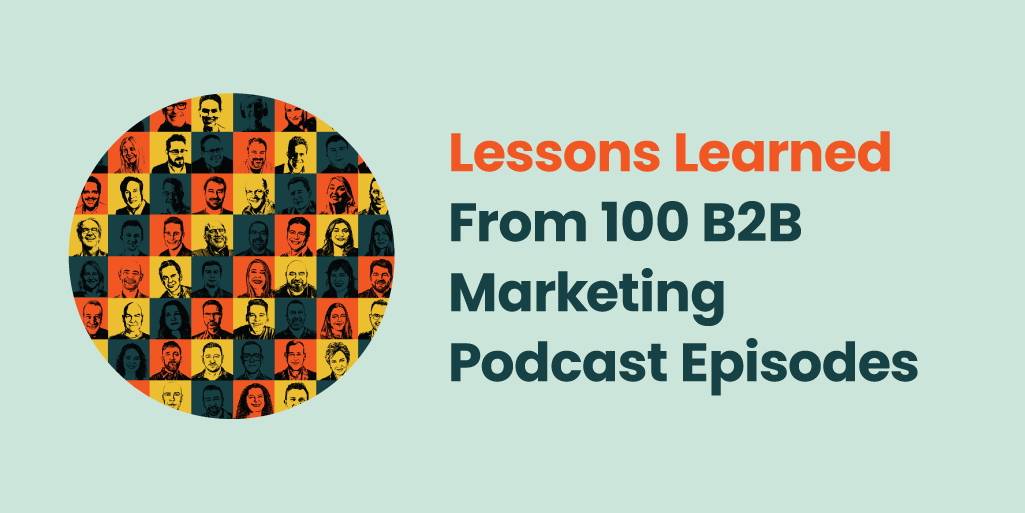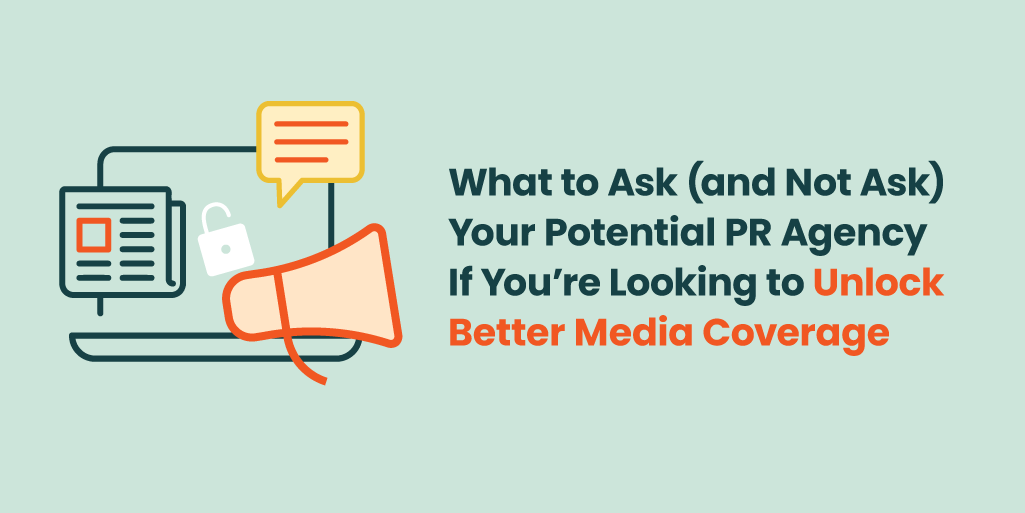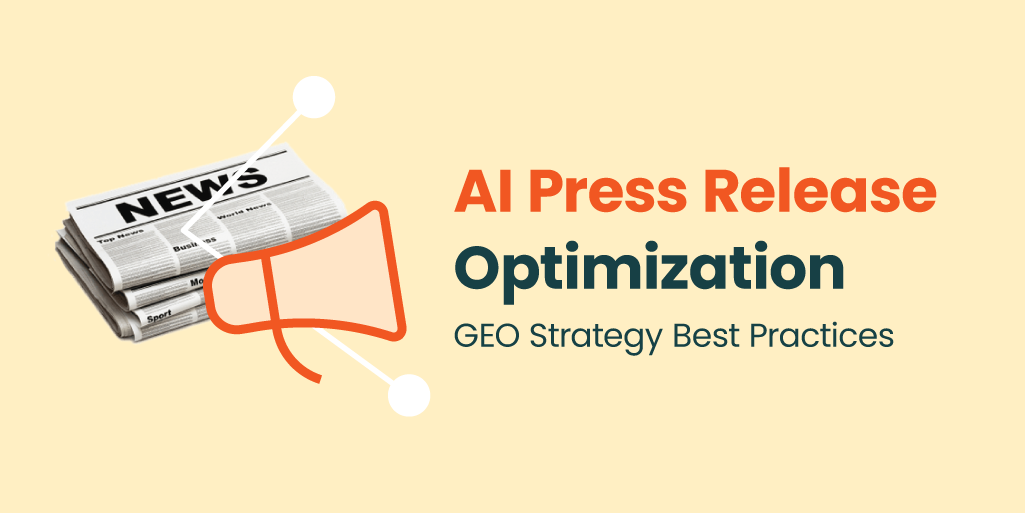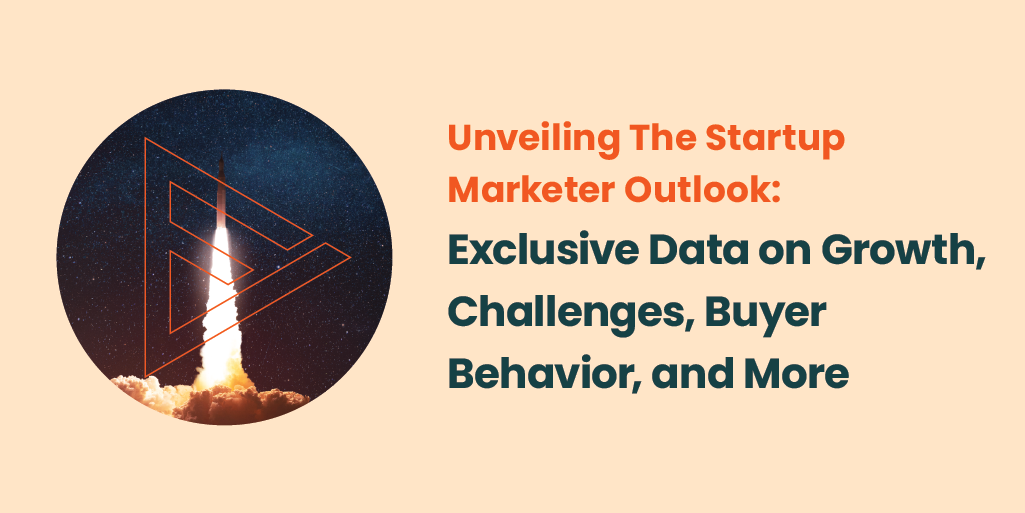Our startup marketing podcast, FiredUp!, has just published its 100th episode. It’s a milestone. So beyond thanking our listeners, guests, and the amazing team behind the scenes, we wanted to share a few lessons learned from reaching triple digits.
Let’s be clear: this isn’t The Rest is History or Acquired. We’re not selling out live events or trending on Spotify. But we know it’s valuable. Prospects mention the show. Metrics are growing. We even have merch. So here’s what we’ve learned along the way.
1. You Probably Don’t Need a Podcast
A lot of tech startups are tempted to launch a podcast as part of their executive visibility strategy. It’s trendy. It sounds fun. We are often asked whether a CEO should have one.
For most startups, the answer is probably no.
Not because podcasts aren’t valuable, but because they require sustained effort. It’s a lot of time, consistently. If you’re testing the waters, start smaller. A regular long-form post on LinkedIn or the company blog is easier to maintain. Pitching your execs as guests on other shows is also a more scalable route.
Lesson: Don’t start a podcast unless you’re ready to commit real resources on a regular basis for the long haul.
2. Building a Podcast Audience Is Hard
As of 2024, there are over 5 million podcasts and more than 70 million episodes available globally (Spotify for Podcasters). And yet, 44% of podcasts don’t make it past episode 3, and only 10% reach episode 21 (Amplifi Media).
Virality is rare in audio. Discovery is fragmented. People usually find your show through social media, word of mouth, or guest appearances on other shows. You can pay to promote episodes, and that might help, but it’s not a magic growth lever.
Lesson: Podcast audience growth is a long game. You’ll improve as you go, and your early awkward episodes will fade in importance as your skills and reach grow.
3. Start with Video
Everyone says this, and they’re right. YouTube is a powerful discovery engine, and video content has more reuse potential across channels. We didn’t start with video. We wish we had. It’s intimidating, but it pays off.
Lesson: If you can, start with a video podcast. It will expand your distribution and content opportunities.
4. Don’t Launch It On Your Own
Yes, you can do it all yourself—record, edit, publish, promote—but it’s not easy and it will take time. Descript is great, but it still takes effort to learn and finesse. Audio editing is a skill, and there are wonderful engineers out there. Branding, graphics, show notes, promo clips, workflows… It’s a lot.
Lesson: If your time is better spent elsewhere, get help. A small team makes a big difference.
5. You’ll Probably Get Better
Or at least care less about your own awkwardness. Hitting ‘record’ becomes easier but the playback is still painful. You’ll become very aware of your verbal and visual tics, and that’s the price of admission.
Lesson: Stick with it. Hosting gets more natural over time.
6. Guests Are a Wildcard
We’ve had fantastic guests. But even great guests vary. Some overprepare, some underprepare, and some show up with a tinny laptop mic in front of a cluttered background.
The two biggest issues:
- Poor audio quality (a deal-breaker for retention).
- Guest dynamics – some talk too much, others too little.
Overtalkers can be edited. The tight-lipped ones are trickier. It takes energy and curiosity to draw them out.
Lesson: Send guests prep tips (mic, lighting, topics), and have a strategy for coaxing great answers live.
7. A Podcast Fuels Other Content
A single episode, especially in video, creates hours of repurposable material. Clips for social. Quotes for newsletters. Snippets for blog posts. It helps drive traffic, improves time-on-site, and keeps your channels fresh.
We tried turning full transcripts into Deep Dives with SEO optimization using AI. It didn’t work. Despite solid keywords and formatting, they didn’t rank well.
Lesson: AI-assisted content repurposing doesn’t actually rank well in search. But video content does create lots of other assets.
8. Some Guests Don’t Promote Your Show
Ideally, your guests will reshare their episode. But some won’t. Maybe they’re busy. Maybe they forgot. It’s rare, but don’t take it personally.
Lesson: Ask politely, follow up once, and move on.
9. You’ll Learn a Lot
Whether it’s industry trends, tech tactics, or leadership insights, if your podcast is guest-driven, it becomes a free masterclass every week. Plus, you get better at articulating your own ideas through repeated on-mic conversations.
Lesson: Hosting sharpens your thinking, just like writing does.
10. Multiple Hosts Help Maintain the Cadence
It really helps having multiple hosts. Calendar conflicts, vacations, and illnesses happen so plan accordingly. Batch-recording is key. It helps to have one episode ‘in the can’.
Lesson: Treat your podcast like a real show, because it is.
11. The AV Kit Matters
A good mic goes a long way. So does a ring light. You don’t need a full studio setup, but production quality matters more than you think.
Lesson: Start scrappy, but upgrade gradually. Audio quality is table stakes for retention.
It has been a rewarding journey getting to 100 episodes.
What’s next? We’re launching a new startup podcast series: FiredUp Funded! These are conversations with startup CEOs right after their funding rounds, digging into what’s next for their company. Check it out here, and thanks again for listening to FiredUp!.
Want insights like this delivered right to your inbox? Sign up for our monthly newsletter, The Forge.
About the Author
Morgan McLintic is the founder and CEO of startup marketing agency,Firebrand. Firebrand works with early- and late-stage startups to help raise awareness and drive demand. It does this through integrated programs involving PR, content marketing and digital marketing. The firm was recently recognized as the Boutique Agency of the Year by the PRSA (Public Relations Society of America) and awarded Gold Winner of theB2B PR Campaign of the Year by The Drum. Firebrand works with startups in sectors spanning fintech, cybersecurity, AI/ML and infrastructure such as Emburse, Human Interest, Planful, Weaviate and Yubico.
Prior to Firebrand, Morgan was the founder in the US of LEWIS, a global communications firm, which grew to $35m in revenues and 200+ staff in the US, and $75m with 600 staff globally. He has over 30 years' tech experience, both consumer and B2B. At LEWIS, Morgan led the acquisition of three companies - Page One which was integrated and rebranded as LEWIS Pulse; the Davies Murphy Group, a 65-person PR and marketing consultancy; and Piston, a 50-person full-service digital advertising agency.
Morgan has been a speaker at events for AlwaysOn, Holmes Report, MIT / Stanford VLABs, OnHollywood, PR News, PRSA, Social Media Club, Social Media World Forum, Venture Capital and Private Equity Group, and WITI. PRWEEK named him to its Global PR Powerbook in 2015 and 2016.
Follow Morgan onLinkedIn, tune into theFiredUp! podcast, or explore his latest posts onFirebrand’s blog.




